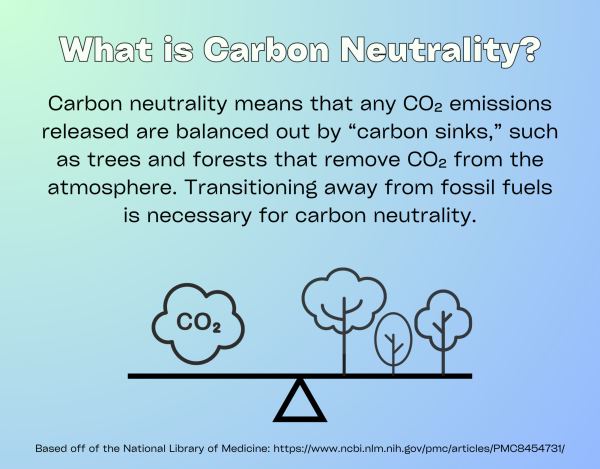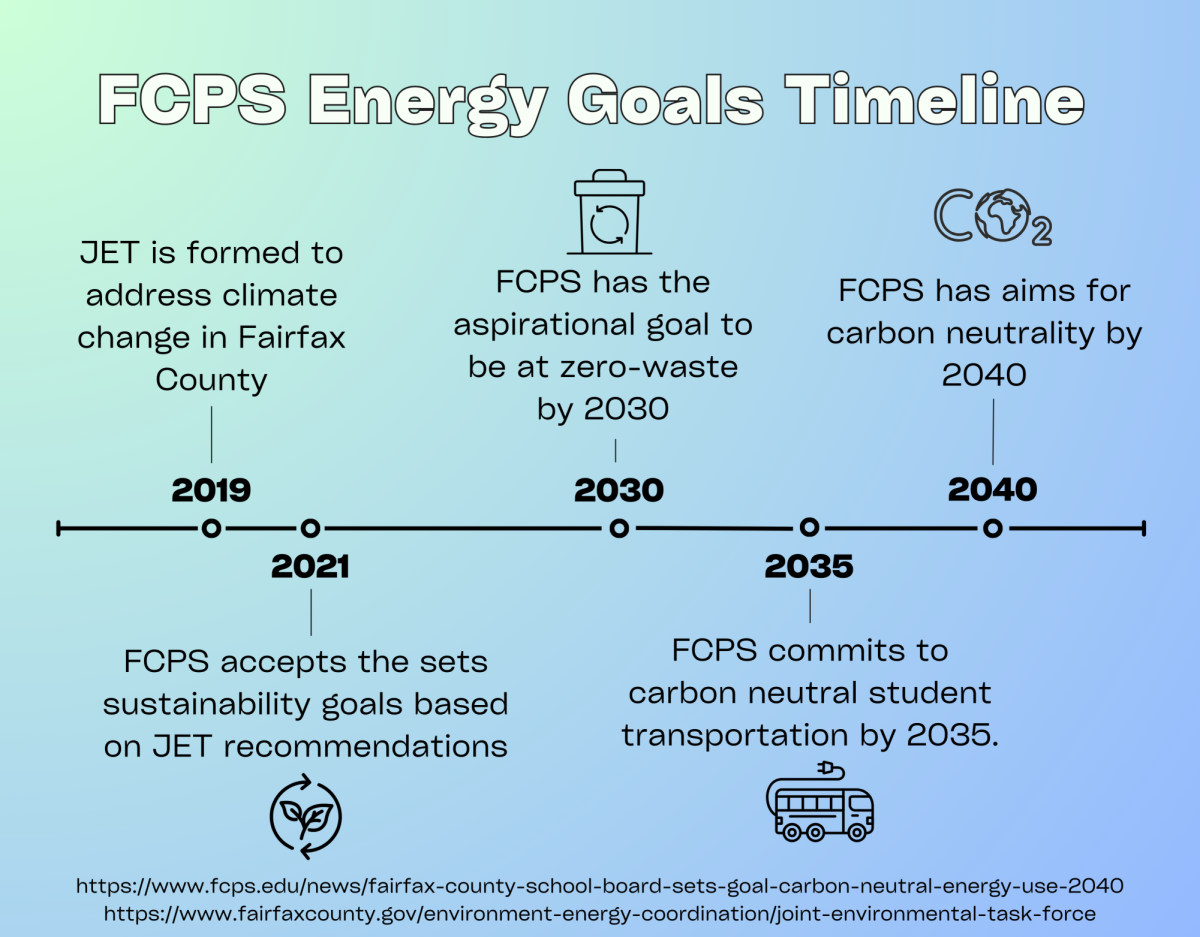As part of the EPA’s first Clean School Bus Program, Fairfax County Public Schools (FCPS) was awarded $16,590,000 on Jan. 8 to purchase 42 electric school buses to improve air quality and advance environmental justice.
“We’ve set a goal by 2035 to fully electrify [our school buses],” FCPS School Board Chair Karl Frisch said. “We have one of the larger school bus fleets in the country with more than 1600 buses. We have 18 already in the system with more on the way, plus the 42. We should be nearing a hundred soon.”
The 18 electric school buses currently in the fleet were funded with grants from Dominion Energy and the Virginia Department of Environmental Quality (DEQ).
“The biggest reason is to improve the air for the students and the faculty on the bus route and the surrounding neighborhood [and] to reduce the carbon gasses that the diesel buses produce,” FCPS Coordinator III of Fleet Operations Ron Edwards said.
Based on recommendations from the Joint Environmental Taskforce (JET), FCPS has agreed to carbon neutrality by 2040, and to transition to zero-carbon alternatives for student transportation, such as school buses, by 2035. Transitioning the county’s buses from diesel to electric will be a major part of meeting this goal.
“Every level of government needs to take an active part in addressing the climate crisis and meeting the challenges we face in the future and preparing for climate resilience,” Frisch said. “We need the buses to help us get there.”
FCPS has reduced 38% of its greenhouse gas emissions from 2008, according to the 2022 FCPS Greenhouse Gas Inventory Report, although there has been a 2% increase in greenhouse gas emissions from 2021-2022. The process from ordering the buses to receiving them would likely take about a year.
“If we make an order, say, by May, then we should get those buses in May 2025 with the anticipation of those buses hitting the road in August-September of 2025,” Executive Director of Transportation Services Paul D’Andrade said.
In addition to being better for the surrounding environment and reducing emissions, electric vehicles are also more economical.
“The cost to maintain through its life cycle which is about 15 years is much less than a diesel bus,” Edwards said. “The electric buses being new, we don’t really know [how] the numbers are going to fall in, but everyone’s projecting about a 30% savings in the life of the bus. And a lot of that is the cost of the fuel.”

The electric buses serve an educational purpose for their riders too. Frisch added that younger students already recognize them and call them the “Tesla buses.”
“They offer an education opportunity for our younger learners who can use the buses to learn about electrification and charging cycles,” Frisch said. “They’re better for the local environment. They’re safe, they cost less to keep up, they’re better for the public health and the students who ride the buses. There are so many positives for these vehicles. I’m looking forward to the full conversion.”
While most of the county’s buses still remain diesel-powered, with 42 electric school buses on the way, the prospect of a fully electrified fleet has become more real.
“We have an obligation as a school system to be leaders here,” Frisch said. “We’re the largest school system in the Commonwealth, one of the largest employers in the Commonwealth, and we have an obligation to confront the climate crisis head on and do everything we can in finding a solution.”
This story was originally published on The Purple Tide | The Knightly News on March 20, 2024.




































